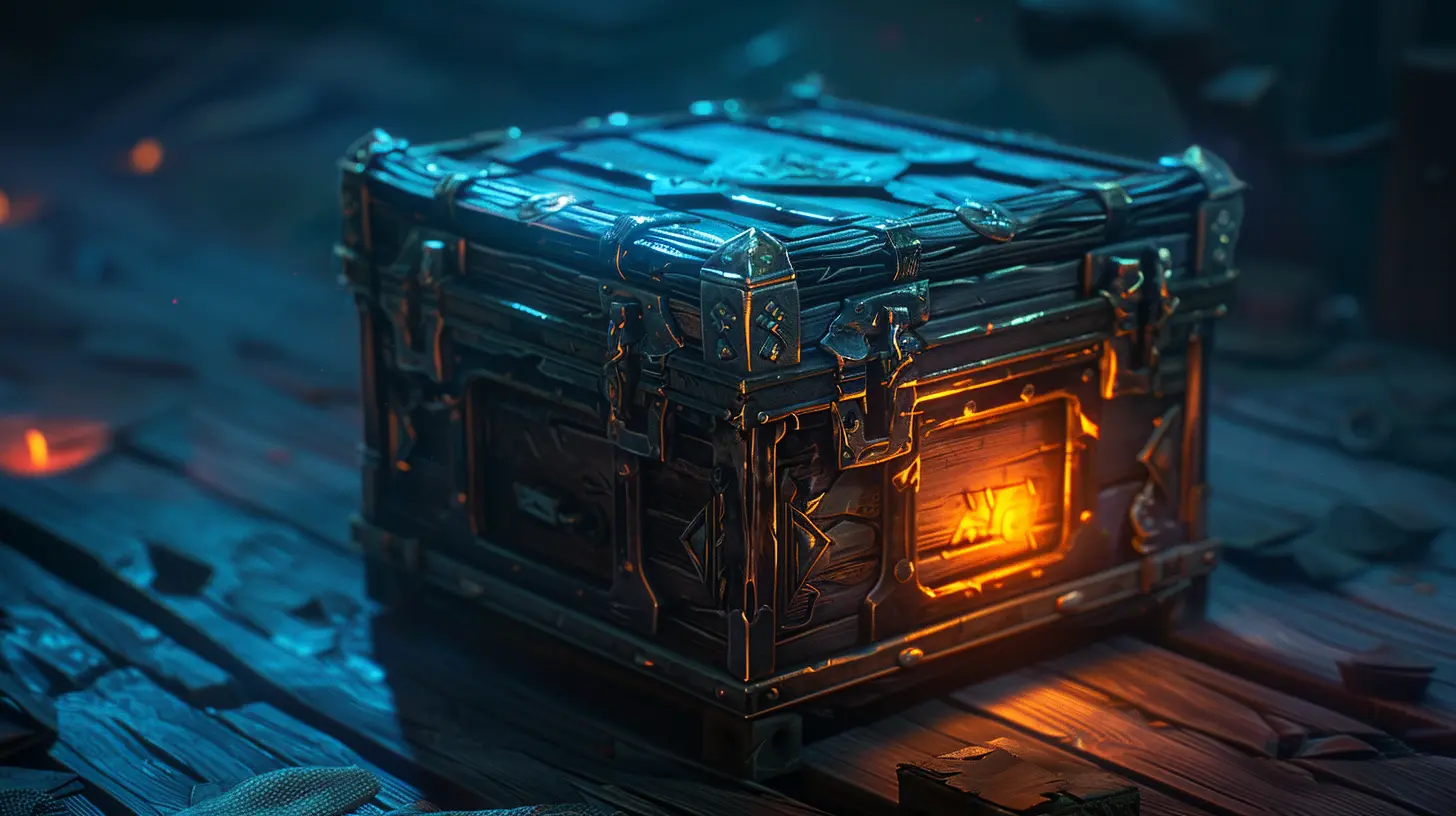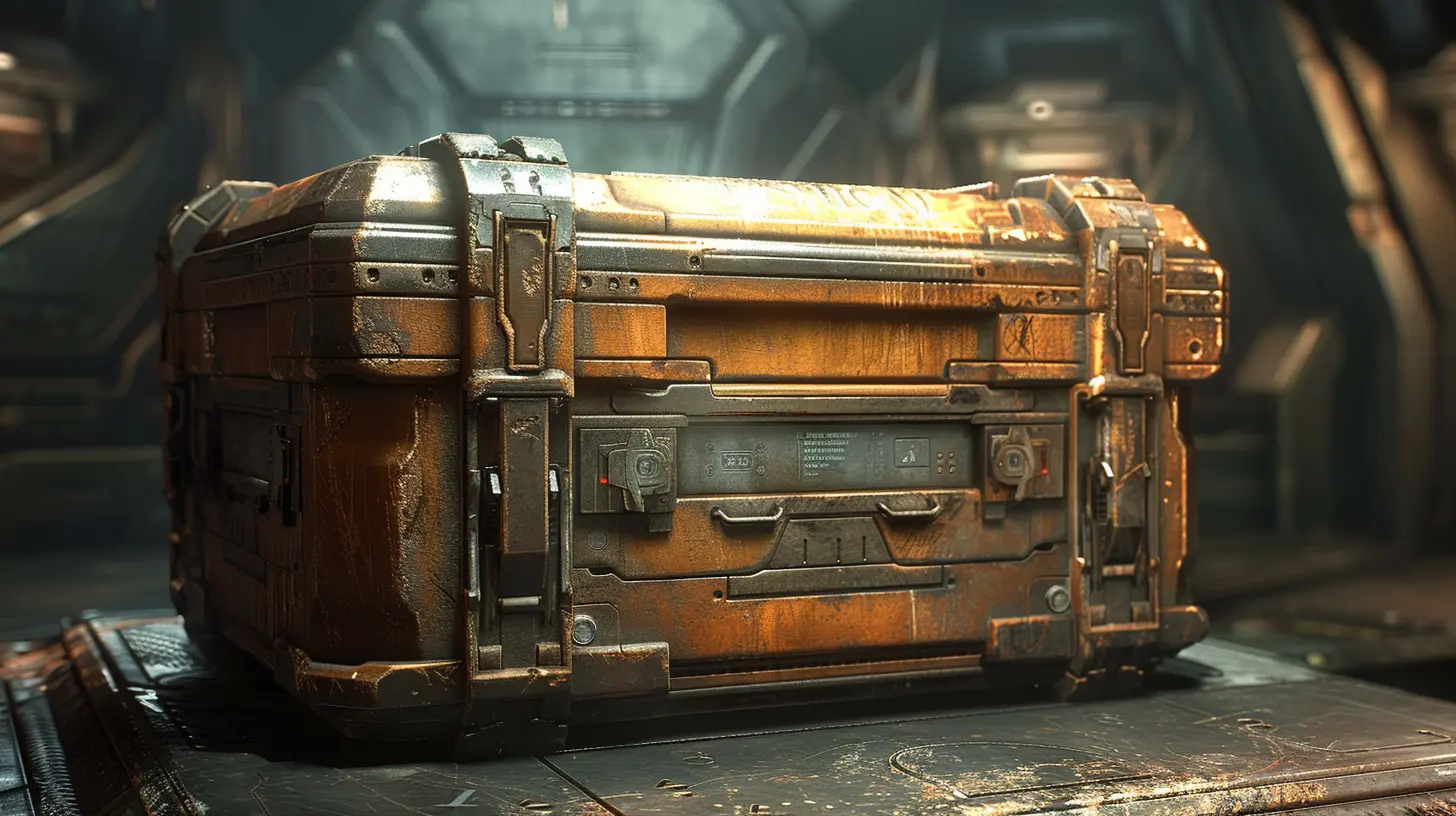The Biggest Loot Box Failures in Gaming History
13 October 2025
Let’s be honest — few things rile up gamers more than a bad loot box system. It’s one of those features that somehow manages to combine disappointment, frustration, and a sense of being ripped off, all in one click. While some developers have tried (and failed) to make loot boxes feel fun and rewarding, others have pushed monetization to the point of breaking their games — and their reputations.
So buckle up. We're diving deep into some of the most infamous loot box disasters in gaming history. From games that were flat-out pay-to-win to ones that triggered government investigations, this list is both a trip down memory lane and a cautionary tale.
What Went Wrong with Loot Boxes?
Before we jump into specifics, let’s quickly set the stage. Loot boxes were introduced as a way to enhance player experience — randomized rewards that could include cosmetics, power-ups, or in-game currency. Innocent enough, right?Well, the problem started when developers figured out how to turn loot boxes into multi-million dollar money machines. Instead of rewarding skill or time investment, loot boxes became a paywall. And when games began locking major features or advantages behind random rewards, players fought back.
1. Star Wars Battlefront II (2017) — The Emperor’s New Loot Box
Let’s just start with the biggest one. When EA dropped Star Wars Battlefront II, fans were beyond hyped. It was Star Wars! What could go wrong?Everything, apparently.
Loot boxes in Battlefront II weren’t just cosmetic — they literally gave players stat boosts. Want a more powerful hero? Get lucky with a loot box. Want to sprint faster or cause more damage? Better pull out your wallet. The grind to unlock a single hero without paying was absurd — we’re talking dozens of hours.
The community exploded in outrage. Reddit lit up, and EA’s now-infamous reply to players became the most downvoted comment in Reddit history. Governments took notice, too. Belgium and the Netherlands even started investigating loot boxes as a form of gambling.
EA was forced to walk it back, but the damage was already done. Battlefront II became the poster child for everything wrong with loot boxes.
2. FIFA Ultimate Team — Pay to Win, Season After Season
This one’s been flying under the radar for years — but not anymore.FIFA’s Ultimate Team mode is essentially a loot box economy in disguise. Players pay real money for packs that contain footballers of varying skill levels. The problem? The chances of getting top-tier players are ridiculously slim. You could drop hundreds of dollars and still end up with mediocre cards.
What’s worse, these teams don’t carry over from year to year. So when the next FIFA drops, all your expensive packs… become worthless.
EA earns billions (yes, with a B) annually from FIFA Ultimate Team alone. It’s been enough to raise some serious ethical questions. Countries like Belgium have already banned FIFA’s loot boxes, considering them a form of gambling.
Yet every year, the cycle continues. New FIFA, new packs, same heartbreak.
3. NBA 2K Series — The Casino in Your Console
If you thought sports games were safe from loot box drama, think again.The NBA 2K series has been quietly getting worse each year. Sure, it’s a basketball sim at its core, but the in-game spending is anything but subtle. 2K introduced Virtual Currency (VC), and while you can technically earn it by grinding, let’s be real — it's painfully slow.
And then there’s the infamous NBA 2K20 trailer. It straight-up showed a digital slot machine and pachinko-style minigames — in a basketball game! Fans were floored. What even was this?
Critics slammed the game for normalizing gambling mechanics, especially since NBA 2K has a large underage player base. It wasn’t just greedy; it felt predatory.
4. Middle-Earth: Shadow of War — The One Loot Box to Ruin Them All
Imagine turning one of the most beloved fantasy worlds into a cash grab. That’s exactly what happened with Shadow of War.The game was actually a solid action-RPG. But then came the loot boxes. Players could buy orcs and other helpful allies with real money — and these orcs were necessary to reinforce your army to beat the game’s final act.
We’re talking about a single-player experience that pushed people toward microtransactions just to see the ending. That’s like charging someone at the movies to watch the last 10 minutes.
Thankfully, after a massive backlash, the devs removed the loot boxes several months after launch. But by then, the game’s reputation had already taken a hit.
5. Call of Duty: WWII — The Loot Box Spectacle
Call of Duty games have dabbled in loot boxes for a while, but WWII took things to a whole new level.In the game’s social hub, players could not only open loot boxes — other people could watch you do it. The game literally encouraged players to spectate loot box openings, turning it into a spectacle. Some even earned rewards just for watching others gamble.
It felt like a casino show floor had been dropped into a World War II setting. Tasteful? Not really.
Eventually, the system was scaled back. But not before drawing heavy criticism for manipulating player behavior and glorifying microtransactions.
6. Overwatch — Pretty on the Outside, Messy Inside
This might be a controversial one.Yes, Overwatch popularized the cosmetic-only loot box model. And to its credit, you could unlock everything without paying — in theory. But the reality? The odds were stacked. Legendary skins were so rare that getting what you wanted felt almost impossible.
During seasonal events, the FOMO (fear of missing out) was real. Players shelled out cash to get limited-time skins that might never return. And while Blizzard insisted it was all optional, the design was clearly meant to push spending.
To make matters worse, Overwatch didn’t disclose loot box odds until regulators stepped in. In China, for example, Blizzard was forced to publish drop rates, revealing just how slim the chances were.
While Overwatch remains loved by many, its loot box model paved the way for others — some of which were far less ethical.
7. Counter-Strike: Global Offensive — Skin Gambling Gone Wild
This one gets wild.CS:GO introduced weapon skins through loot boxes, and at first, it seemed harmless. But then came third-party websites that allowed players to gamble their skins for real money. We're talking slot machines, roulette, and betting — all revolving around CS:GO skins.
Even worse? Many of these sites were poorly regulated, and some were even run by popular YouTubers who never disclosed their ownership. It quickly spiraled out of control. Some underage gamers lost thousands of dollars.
Valve eventually cracked down, banning some sites and tightening the rules. But this dark period in CS:GO history exposed the dangers of blending loot boxes with gambling culture.
8. Mobile Games Galore — Gacha Gone Wrong
Let’s not forget mobile games, where loot boxes — or “gacha” systems — are practically the norm.Games like Clash Royale, Genshin Impact, and Raid: Shadow Legends lure players in with flashy animations and free pulls. Then, slowly, the walls close in. Progress slows to a crawl unless you spend. And good luck getting that one character you want — the drop rate is probably 0.6%.
These games are designed to keep you in the loop: give a little, take a lot. It’s like a slot machine in your pocket, minus the free drinks.
To be fair, gacha games can be fun. But they also illustrate how normalized loot box mechanics have become — especially on mobile platforms where regulation is still lax.
Why Do Loot Boxes Fail?
Great question.Loot boxes fail when they prioritize profit over player experience. When randomness replaces skill or grind, when rewards are tied to real money, and when players feel manipulated, trust goes out the window. And once that happens, even the best gameplay can’t save a sinking ship.
It’s a classic case of overplaying one’s hand. Developers see the dollar signs, push too hard, and boom — backlash. Sometimes they learn, sometimes they don’t. But gamers always remember.
Are Loot Boxes Still Around?
Yes, but they’re evolving.Due to rising pressure from governments and communities, many games now show drop rates. Others have shifted toward battle passes — structured, predictable, and generally more transparent. Some games, like Fortnite, have ditched loot boxes entirely.
Still, loot boxes haven’t disappeared. They’ve just gone stealth. So it’s up to us, the players, to keep calling out predatory practices and rewarding games that respect our time and money.
Final Thoughts
Loot boxes aren’t inherently evil. At their best, they can be fun little surprises — like unwrapping a digital piñata. But when misused, they can sour even the most beloved franchises.We’ve seen how badly things can go, from Star Wars to FIFA to CS:GO. And while some developers have learned their lesson, others are still testing the limits.
So the next time you see a fancy loot box, ask yourself — is it fun, or is it fishing for your wallet?
Either way, history has shown us one thing: mess with the loot, and you mess with the gamers.
all images in this post were generated using AI tools
Category:
Loot BoxesAuthor:

Lucy Ross
Discussion
rate this article
1 comments
Theo Cooper
Loot boxes spark excitement and controversy; understanding both sides is crucial for informed discussions.
October 13, 2025 at 4:45 PM

Lucy Ross
Absolutely, understanding the excitement and concerns surrounding loot boxes is essential for a balanced discussion about their impact on the gaming industry.


